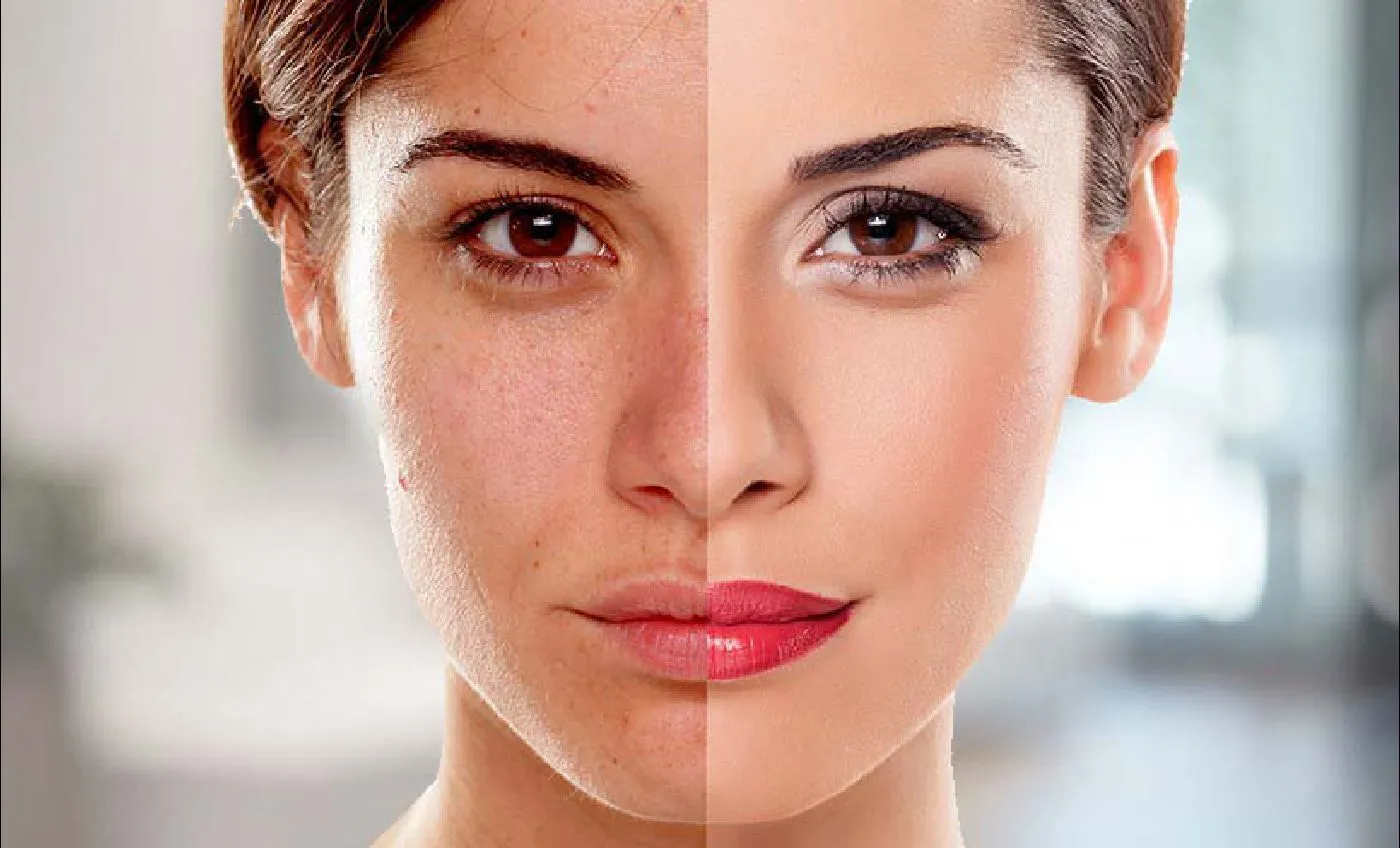What is Whitening Skin Care
Whitening skin care, also known as skin brightening or lightening, encompasses a range of products and treatments designed to reduce the appearance of dark spots, uneven skin tone, and hyperpigmentation. The primary goal is to achieve a more uniform complexion and a brighter, more radiant appearance. These products often work by inhibiting melanin production, the pigment responsible for skin color. It’s crucial to approach whitening skin care with realistic expectations and a thorough understanding of the potential benefits, risks, and available options. This involves recognizing that results vary, and a consistent, well-informed approach is key to achieving desired outcomes. The market is filled with a lot of products, but it’s important to choose the right one.
Understanding Hyperpigmentation
Hyperpigmentation is a common skin condition characterized by the darkening of areas of skin due to an increase in melanin. This can manifest as dark spots, patches, or overall uneven skin tone. It can affect people of all skin tones, although it is more common in individuals with darker complexions. There are various types of hyperpigmentation, including sunspots (solar lentigines), melasma, and post-inflammatory hyperpigmentation (PIH). Understanding the underlying cause of hyperpigmentation is crucial for selecting the most effective treatment options. Proper diagnosis by a dermatologist can help in identifying the most suitable and safe methods for skin whitening, ensuring the skin’s health and appearance are maintained.
Causes of Hyperpigmentation

Several factors can trigger hyperpigmentation. Sun exposure is a primary culprit, as UV radiation stimulates melanin production, leading to sunspots and uneven skin tone. Hormonal changes, such as those experienced during pregnancy (melasma) or from birth control pills, can also contribute. Skin injuries, inflammation, or acne can cause post-inflammatory hyperpigmentation, where dark marks appear after the skin has healed. Other causes include certain medications, genetic predisposition, and underlying medical conditions. Addressing these root causes is an important part of any successful whitening skin care routine. It is also essential to implement preventative measures, such as consistent sunscreen use, to protect the skin and minimize the risk of hyperpigmentation.
Types of Whitening Skin Care Products
The market offers a diverse range of whitening skin care products, each with unique formulations and mechanisms of action. Understanding the different product categories helps consumers choose the most appropriate options. Ingredients, concentrations, and product formulations play a role in the overall effectiveness of the product. It is also important to consider individual skin types and concerns. This knowledge empowers individuals to make informed decisions regarding their skin care routines and to address specific skin care concerns.
Topical Creams and Serums
Topical creams and serums are among the most common whitening skin care products. These formulations are designed to be applied directly to the skin and typically contain active ingredients that target melanin production. They can range from gentle formulations suitable for everyday use to more potent products with higher concentrations of active ingredients. These products are often chosen for their ease of use and convenience. To maximize the effectiveness of topical products, it is essential to use them consistently as part of a daily skin care routine. The correct and consistent application is important to achieve desired results and maintain skin health.
Ingredients to Look For

Several ingredients are recognized for their skin-whitening properties. Hydroquinone, a potent agent, is often used but can have side effects and is sometimes available only by prescription. Other ingredients include Vitamin C, known for its antioxidant and brightening effects; kojic acid, which inhibits melanin production; niacinamide, that reduces inflammation and evens skin tone; and arbutin, a natural compound that lightens skin. When choosing products, it is important to consider the concentration of active ingredients and the overall formulation, which can impact the product’s effectiveness and potential for irritation. Always start with lower concentrations to assess tolerance and consult with a dermatologist to find the best options for your skin type.
Chemical Peels
Chemical peels involve the application of chemical solutions to exfoliate the skin and stimulate cell turnover. This process can reduce the appearance of dark spots and uneven skin tone by removing damaged layers of skin. Chemical peels come in various strengths, from mild peels that can be done at home to stronger peels performed by a dermatologist. The choice of peel type depends on the individual’s skin type, concerns, and desired results. Following the post-peel care instructions is essential to ensure optimal healing and minimize the risk of complications. It is important to use sun protection after a chemical peel because your skin will be more sensitive to sun exposure.
Professional Treatments
Professional treatments provide more intensive options for whitening skin care. They’re usually performed by qualified professionals such as dermatologists or estheticians. They offer targeted solutions and can address a variety of skin concerns, including hyperpigmentation. The availability of professional treatments provides access to expert care and advanced technologies. Choosing the right professional treatment often depends on individual skin conditions and the desired outcomes. It is important to consult with a skincare specialist to assess your skin and determine the best approach. Following the expert’s guidance is vital to achieve safe and effective results.
Laser Therapy

Laser therapy uses concentrated light beams to target and break down melanin in the skin. Different types of lasers can be used, depending on the specific type of hyperpigmentation and skin tone. Laser treatments are often effective for reducing the appearance of dark spots, melasma, and other forms of uneven skin tone. It is critical to choose a qualified and experienced practitioner who is familiar with your skin type and the appropriate laser settings. Post-treatment care is essential and may include avoiding sun exposure and using specific skincare products. Laser therapy offers the potential for significant improvement in skin tone and texture with the right treatment approach.
Key Facts About Whitening Skin Care
Understanding these crucial facts will ensure you can make informed choices. Knowing how the products work, potential side effects, and the importance of other steps in skin care is key. Keeping these factors in mind can lead to better results and a healthier skin. Each point represents an important aspect of whitening skin care, helping individuals navigate the process safely and effectively. Knowing these facts will result in better outcomes and prevent problems. It is essential to remember these principles while beginning or continuing any skin whitening routine.
Fact 1 Effectiveness varies
The effectiveness of whitening skin care products and treatments varies depending on several factors, including the specific product, the type and severity of hyperpigmentation, and individual skin characteristics. Some products may work well for certain skin types or conditions but not for others. It’s important to manage expectations and understand that results can take time and require consistent use. Consulting with a dermatologist can help determine the most suitable products and treatments based on your specific needs and skin type. Also, a professional can provide insight into how long it might take to see significant improvements. It’s also important to consider lifestyle factors that can influence results.
Fact 2 Side effects

Whitening skin care products and treatments can cause side effects, ranging from mild to severe. Common side effects include skin irritation, redness, dryness, and increased sensitivity to the sun. More serious side effects, such as ochronosis (a darkening of the skin) or allergic reactions, can occur, especially with products containing hydroquinone. It is crucial to read product labels carefully, follow the instructions, and perform a patch test before applying a new product to a large area of skin. If you experience any adverse reactions, stop using the product and consult a dermatologist immediately. Being mindful of potential side effects and using products correctly will help ensure your safety.
Fact 3 Sun Protection is Crucial
Sun protection is essential for anyone using whitening skin care products. Sun exposure can worsen hyperpigmentation and counteract the effects of these treatments. Always use a broad-spectrum sunscreen with an SPF of 30 or higher daily, even on cloudy days. Reapply sunscreen every two hours, especially if you are spending time outdoors. Wearing protective clothing, such as hats and long sleeves, and seeking shade can provide additional protection. Consistent and proper sun protection is critical for preventing further pigmentation and maintaining the results of any whitening skin care routine.
Fact 4 Consistency is Key
Consistency is key to achieving the desired results with whitening skin care. Most products require regular and continued use over several weeks or months before visible improvements are noticeable. Following a consistent skin care routine, including cleansing, applying products as directed, and protecting the skin from sun exposure, is essential. Missing applications or discontinuing use prematurely can diminish the effectiveness of the treatment. Patience and dedication are essential to see positive changes. Integrating whitening skin care into a regular skincare routine can help ensure consistent use and improve the likelihood of achieving desired results.
Fact 5 Consult a Dermatologist

Consulting with a dermatologist is always recommended before starting any whitening skin care routine. A dermatologist can assess your skin, diagnose the cause of hyperpigmentation, and recommend the most appropriate treatments. They can also monitor your progress and address any potential side effects. Dermatologists can provide valuable insights into product ingredients and offer advice tailored to your specific skin type and concerns. Consulting a professional helps in creating a safe and effective skin care plan.
Fact 6 Know Your Skin Type
Knowing your skin type is crucial when selecting whitening skin care products. People with sensitive skin should choose gentle formulations and perform a patch test before using new products. Those with oily skin may prefer lightweight serums over heavy creams. Understanding your skin’s specific needs helps you choose products that are effective and minimize the risk of irritation or other adverse reactions. If unsure about your skin type, consult a dermatologist for a professional assessment. They can offer personalized product recommendations and skincare advice.
Fact 7 Realistic Expectations
Having realistic expectations is essential in whitening skin care. It is important to understand that results take time and that significant changes may not be immediate. The goal should be a gradual improvement in skin tone and a reduction in dark spots, rather than a complete transformation. Some hyperpigmentation may be difficult to eliminate entirely, and maintenance treatments may be needed to maintain results. Celebrate small improvements and focus on overall skin health, and always remember that consistent, proper skincare and realistic goals are the best approach.
How to Choose the Right Products

Choosing the right whitening skin care products involves a careful approach, considering several factors to ensure both effectiveness and safety. This includes understanding your own skin and the specific products available. It is essential to know which ingredients are effective, and also to consider the potential risks. Using this information, you can create a skin care routine that will help you reach your goals. The best skin care plan will be a combination of good products, a healthy lifestyle, and expert advice from a dermatologist.
Read Reviews and Check Ratings
Before purchasing a whitening skin care product, read reviews and check ratings from other users. This can provide valuable insights into the product’s effectiveness, potential side effects, and overall customer satisfaction. Look for reviews from people with similar skin types and concerns to get a more relevant assessment. Websites and online platforms provide opportunities to compare products and see the experiences of others. By researching and reading reviews, you can make informed decisions and choose products that are more likely to deliver the desired results.
Start with Low Concentrations
When starting a whitening skin care routine, it is advisable to begin with products containing lower concentrations of active ingredients. This approach helps assess your skin’s tolerance and minimizes the risk of irritation or adverse reactions. If you experience no adverse effects, you can gradually increase the concentration of the product or consider more potent options. This cautious approach allows your skin to adapt and reduces the likelihood of over-treating your skin. Always follow the product instructions and pay attention to how your skin responds. By starting with low concentrations, you can gradually determine what your skin can handle and prevent potential issues.
The Importance of Sunscreen
Sunscreen is a non-negotiable step in any whitening skin care routine. Sun exposure can worsen hyperpigmentation and undermine the effects of the treatments. Sunscreen helps prevent new dark spots and maintains the results of your skin-brightening efforts. Choose a broad-spectrum sunscreen with an SPF of 30 or higher and apply it liberally every day, even on cloudy days. Reapply every two hours when outdoors and after swimming or sweating. The consistent use of sunscreen not only protects your skin from the sun’s harmful rays but also ensures that your whitening skin care products can work more effectively. Sun protection is the single most important step in any successful whitening skin care routine.
